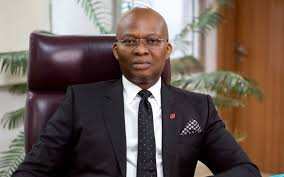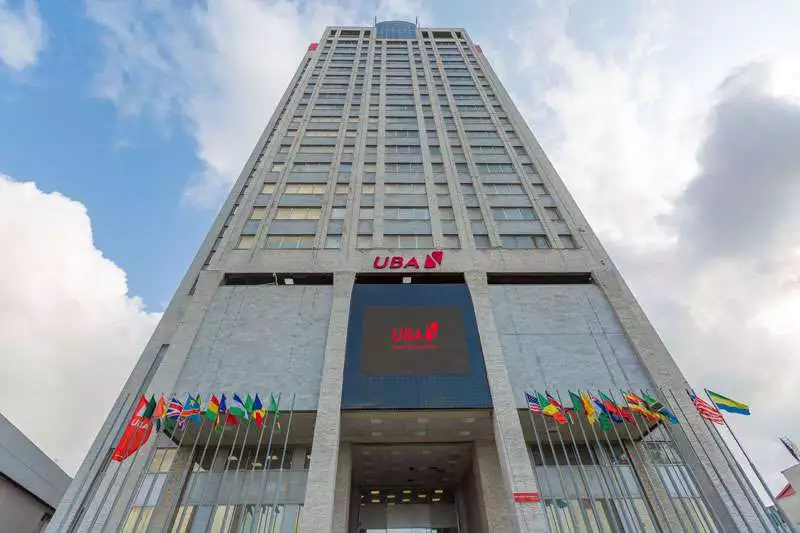Billionaire United Bank for Africa, UBA chairman, Tony Elemelu, last week, cited his success with the commercial bank as one of the reasons for the acquisition of 45 per cent stake in OML 17 former owned by Shell which effectively made him owner of Africa’s biggest oil block in a deal worth over $1.1 billion.
For many years, the banker has carefully nursed the commercial bank into one of the biggest banks in the country after its merger with Standard Trust Bank, STB owned by the businessman in 2005.
Speaking of the acquisition, the chairman of Heirs Holding said he had set his eyes on the ball to make UBA one of the biggest financial behemoths from the very start, which in turn has turned him to a business mogul of repute. He said people “are disappointed when I tell them that I couldn’t readily think of any “failures”. Yes, my life in business has not been perfect – far from it – but I have never been a person to view the glass as half-empty, instead of full.
“I have always believed that in the most difficult times, lay the most unexpected opportunities. Many of the life-changing decisions that transformed my life for the better, have been made in times of “distress”, so I never come to think of these periods as failures, but as a time for reflection, repositioning and, if necessary, reinvention.

“Perhaps this trait of persistent optimism and doggedness is rooted in my childhood. At the age of barely five years old, my family had to flee Jos, leaving everything we possessed, running for our lives in the middle of civil war. This dislocation could have shattered and torn a family with five small children apart, burying them in a deep hole of financial and mental hardship, but I witnessed my father and mother rise.
“I fondly recall my childhood days with no memory of ever lacking for anything – not because we were rich or wealthy, but because my parents made sure to never accept defeat, to never dwell on disappointments, and to never see failure as anything other than a chance to rethink and reposition.
“Today, after eight years of resilience, endurance, optimism, and persistence, Heirs Holdings, the leading African strategic investor, in partnership with our affiliated company Transnational Corporation of Nigeria Plc (“Transcorp”), Nigeria’s largest publicly listed conglomerate, announced its acquisition of a 45% participating interest in Nigerian oil license OML 17, and related assets from Shell, Total and ENI.
“At US $1.1 billion, this transaction is one of the largest oil and gas financings in Africa this decade. The asset has a current production capacity of 27,000 barrels of oil equivalent per day (“boe/d”) and 2P reserves of 1.2 billion boe, with an additional 1 billion boe resources of further exploration potential. In addition, we will have sole operatorship.”
Worsening Complaints Over Lender’s Electronic Payment Systems
Elumelu’s success in business cannot be separated from UBA’s, his baby which he has nursed to be one of the biggest banks in the country in terms of customer deposit and branch networks. In spite of its success in Nigeria’s financial sector, the Deposit Money Bank, DMB has had its own share of controversies, including, but not limited to, alleged sharp practices by some members of staff and management. Therefore, the recent allegation of Automated Teller Machine, ATM related fraud did not come as a rude shock to customers and keen stakeholders in the sector.
A customer of the bank @Rexshrizzy has alleged on his twitter page that the bank’s ATM in Ijebu Ode, Ogun state are dispensing fake naira notes to customers. The customer, who said he was surprised that a commercial bank with UBA high reputation could be involved in such fraudulent act, said he was prepared to go public if the bank failed to do something about his allegation.
According to him, he had gone to withdraw some money at the bank’s ATMs in the town when he discovered that the cash dispensed by the machine were fake naira notes. Narrating the ugly experience, the customer said “I withdrew 1K from your ATM here in Ijebu Ode Branch and na fake naira notes e dispense.”

The angry customer who said he’s unhappy with the ugly experience, said there’s an urgent need for the regulatory authority like the Central Bank of Nigeria, CBN to wade into the matter to save other customers who may have experienced a similar ordeal, or others who might face the same problem in the future. Demanding that his allegation be looked into he said “@cenbank is it supposed to be like that”?
This is not the first time the lender, touted as Africa’s Global Bank has been enmeshed in alleged electronic payment related fraud. The bank’s social media platforms are on a daily basis, awash with customers’ complaints when they make use of the bank’s electronic payment systems. The customers said they are also angry over the cold response of the bank’s social media handlers to their complaints.
Adetutu Daniele @simplytutu while narrating her experience said the bank has failed to do something on a failed transaction since last year. “Pls you guys should look into this for me cos I have made this complaint since October last year so I don’t understand why you guys are yet to send a recall mail to Wema Bank so I can recover my money.”
Another customer TemmyOFLaLa @TemiladeImail said “I did a transfer of 3000 Naira on the 9th of this month the money didn’t get to the receiver and I was debited. What type of bank is this Uba seff,” the angry customer said to @UBAGroup.
Hassan Sodiq Adebayo @Hass said “Pls uba av done everything u ask me to do ND u r still with my 50,000 plsreturn my money my hard earned money.”
Some customers have threatened to move to other banks if the problems persist. “This is not good for the bank that’s trying to build a global brand. The management of the bank should rise up to the occasion by assuring customers that the problems are not deliberate.
That includes quick response to customers’ complaints. Failure to do this would mean that some employees of the bank are responsible for these fraudulent practices. Why should ATMs be dispensing fake naira notes for instance? Wole Adebanji, a forensic expert said. “This is a serious matter that must be looked into, to prevent customers from abandoning the ATMs for fear of cashing fake currency. I’m sure that this is not what the bank wants, particularly in the covid 19 era when banks are trying to reduce physical contacts in banking halls,” he said.
The ATM was introduced into the Nigeria Market in 1989 and its debut has no doubt changed the face of electronic payment in Nigeria. The first one was installed by National Cash Registers, NCR for the defunct Societe Generale Bank Nigeria (SGBN) in the same year. Many commercial banks have adopted Self Service (ATMs) technology due to its cost effective nature.
Discover more from The Source
Subscribe to get the latest posts sent to your email.








